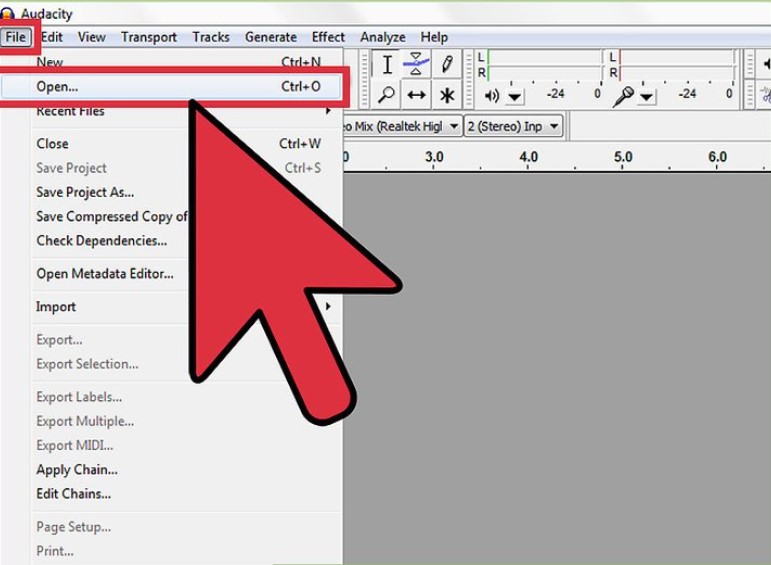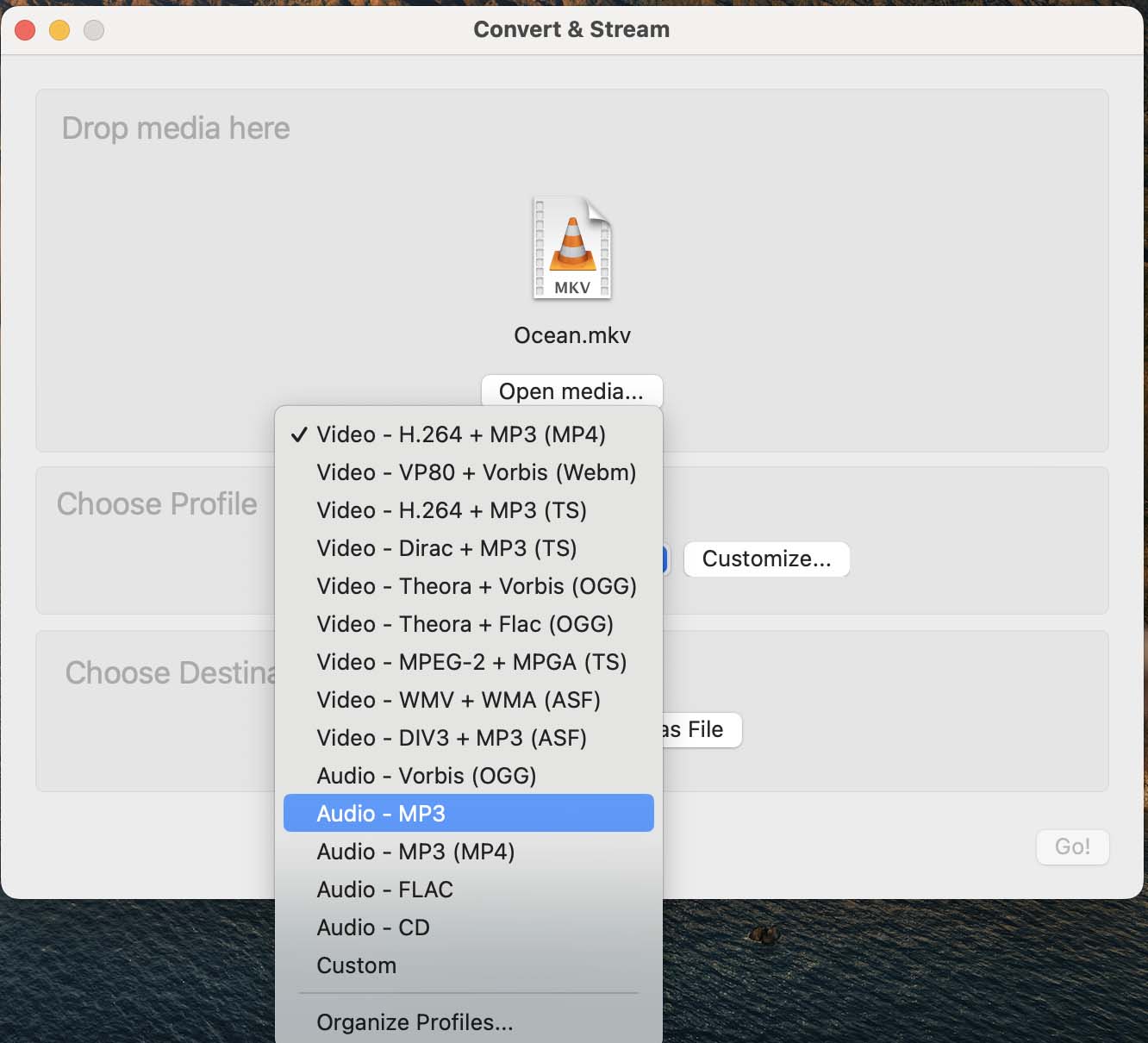Do you want to extract audio from the MKV file? This tutorial will teach you how to extract audio from a video for listening or other creative applications. We’ll check out three options that work on different systems and satisfy different tastes. By the conclusion, you will learn all you need to know to extract audio from MKV files successfully.

How to Extract Audio From MKV
The MKV format is widely used because it can store numerous audio, video, and subtitle streams in a single file. Extracting the soundtrack from an MKV file may be easy if you know the right way to do it. MKV audio ripping is covered in this article, whether you are using a Mac, a PC running Windows 10, or online services. No matter your technical ability, there’s a plan for you. Let’s start denoising MKV files.
Also read: How to Convert Video for Twitter? >
Table of Contents: hide
Extract Audio from MKV on Windows 10
Audacity can assist Windows 10 users in extracting audio from MKV files. Audacity, a free and open-source application, is used to alter and extract audio from numerous sources, including MKV movies. Audacity lets you rapidly extract movie sound and save it as MP3 or WAV. Data extraction is easy using the program’s user interface and functionality.
Follow the steps below to learn how to extract MKV audio using Audacity:
Step 1: Download and install Audacity and launch it on your PC.
Step 2: Start Audacity on Windows 10.
Step 3: Click “File” and “Open” to extract audio from an MKV file.

open audio
Step 4: Audacity displays the audio waveform after loading the MKV file.
Step 5: Click and drag the waveform to choose the audio you want to extract.
Step 6: Select “Export Selected Audio” from Files to save the extracted file.
Step 7: After writing a name and choosing an audio format, click “Save” to finish extracting.
Audio extraction from MKV files is a breeze on Windows 10 thanks to Audacity’s user-friendly interface and robust editing features. You may create soundtracks, podcasts, and other audio projects with the freedom to work with your audio files independently.
Rip Audio From MKV on Mac
Mac users may use a VLC media player to extract audio from MKV files. VLC, a versatile media player, supports MKV. VLC plays MKV files and lets you easily take the audio out of them.
Here’s how to use VLC on a Mac to get audio from an MKV file:
Step 1: Download and launch VLC on your Mac.
Step 2: Navigate to “File” > “Open File” to browse and select the MKV file you want to extract audio from.
Step 3: “Convert” from the “Playback” menu (or Command + Option + S) after loading the MKV file.
Step 4: Convert shows the source file. Select the MP3 format from the bottom drop-down.

Choose Format
Step 5: Click “Browse” to choose a folder for the extracted audio file.
Step 6: Name the output file. flac or.mp3.
Step 7: Finally, click “Start” to extract audio.
Step 8: Save the extracted file on your device.
VLC’s built-in conversion features simplify extracting audio from MKV files on a Mac. VLC provides a simple means of audio extraction, allowing you to save the extracted track as a standalone file for later use in things like music compilations or other multimedia endeavors.
Also Read: How to Trim Videos in VLC Media Player >
Extract Sound From MKV Online
Audio Extractor is a dependable online choice if you’d rather remove audio from MKV files than use the native player. Audio Extractor can extract audio from MKV and other movie formats without installing additional software.
To extract audio from an MKV file using Audio Extractor, follow these steps:
Step 1: Open Audio Extractor in your browser.
Step 2: Upload the MKV file from your PC.

Upload File
Step 3: Wait for the Audio Extractor tool to process the uploaded file.
Step 4: You may choose the output format and audio quality after uploading. Select audio extraction options.
Step 5: Start extraction by clicking “Extract” or “Start”.
Step 6: Wait for the MKV audio extractor. The file size and internet speed determine the time.
Step 7: After extraction, you may download the audio file.
With Audio Extractor, you can easily and quickly remove the audio from MKV files without installing other software. You may quickly and easily extract the audio from your MKV movies for use in other projects, such as making an audio compilation, without installing any software.
FAQs About Extracting Audio From MKV Video
1. Can I extract multiple audio tracks from an MKV file?
You can extract multiple audio tracks from an MKV file using software like Audacity or VLC. Import the MKV file into the software and select the desired audio tracks for extraction.
2. What audio formats are supported for extraction?
Most audio extraction software supports MP3, WAV, AAC, and FLAC. Depending on the tool, formats may differ.
3. Will extracting audio from an MKV file affect the video quality?
No, extracting audio from an MKV file does not affect the video quality. It only separates the audio tracks from the video file without making any changes to the video itself.
Final Thought
Several ways and programs are designed to simplify extracting audio from MKV files. There are choices for everyone, whether they’re using Windows 10, a Mac, or would rather use a web-based service. For Windows users, Audacity offers a robust and feature-rich experience, letting you precisely and freely extract audio from mkv recordings. Audio may be easily extracted from MKV files using VLC, a flexible option for Mac users. Audio Extractor is a browser-based option for people who prefer working with their media files in their preferred environment.
Choosing a technique that works with your OS and personal preferences is important. The article’s recommended tools and techniques provide dependable means to extract audio from MKV files so you can use the audio tracks for anything you choose. Explore the possibilities of employing the extracted audio in artistic endeavors or for personal pleasure now that you can work with the audio independently from the visual.



